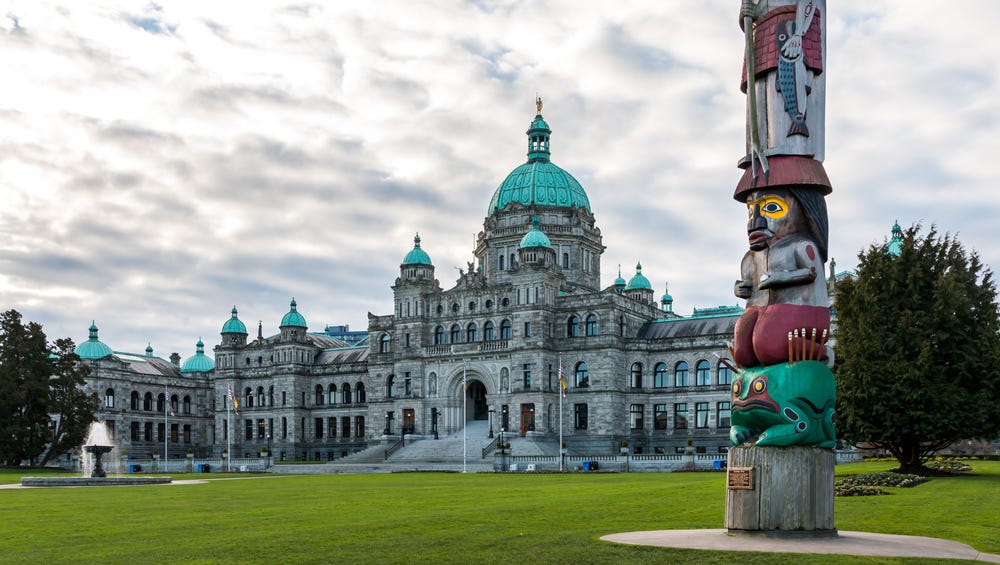Rob Shaw: BC election a trial run for the federal Conservatives
The BC Conservatives have captured the early energy in the campaign by borrowing liberally from the Pierre Poilievre playbook.
By: Rob Shaw
VANCOUVER — Just what exactly is happening out here in British Columbia?
It’s a question the rest of Canada is asking as it watches our provincial election lurch out of the starting gate, a jumbled mess of panicked policy reversals, simmering public dissatisfaction and shifting political winds.
Even on the ground, on the campaign trail in the first couple of days, in the trenches of the battleground ridings, it’s not exactly clear.
The BC NDP are going about their business on the hustings, with all the money, organizers and power that flows from incumbency. But David Eby’s recent reversals on the carbon tax and involuntary care have many observers scratching their heads — if not on the policy changes themselves then on the clumsy way in which they were executed.
Meanwhile, it’s BC Conservatives packing their rallies with hundreds of cheering people. The party seems to have captured the early energy in the campaign by borrowing liberally from the Pierre Poilievre playbook.
Conservative leader John Rustad organized his first rally of the campaign at a winery on north Vancouver Island on Saturday, where Poilievre has held two of his own in the last year.
He stood on a riser in the middle of a circle of 300 seated supporters, just like Poilievre did, in an event structured almost exactly like those held by the federal leader.
Attendees were given blue rectangular signs emblazoned with slogans like “Safe Streets Now!” and “Recriminalize Hard Drugs” with a similar format, font and “C” logo to the “axe the tax” and “common sense” signs seen at federal events.
And Rustad emerged to the same kind of upbeat elevator rock music that Poilievre sometimes uses, while delivering a speech designed to mimic the high notes used by the federal leader.
It worked, but also felt like watching a tribute band, or some sort of warm-up act at a concert. I half expected Poilievre himself to pop out at any moment as the headliner.
“British Columbians are living in fear as gang violence spirals out of control, and the Eby-Trudeau alliance has done nothing to stop it,” Rustad said in a news release Sunday night in response to a shooting. “David Eby and Justin Trudeau are two sides of the same coin—both pushing soft-on-crime policies that allow criminals to operate with impunity.”
Rustad has focused his campaign squarely on the issue of drug policy, sensing, as the federal party does, the public’s frustration with street disorder and addictions.
On Sunday, he announced he would close B.C.’s 48 supervised drug consumption sites and turn them into addictions treatment intake centres. The shift builds upon previous promises to roll back safe supply and end decriminalization — issues Poilievre has successfully been hammering home for months.
“We have to stop the drugs,” Rustad said Sunday, in a tone that ought to feel familiar to anyone paying attention to Poilievre’s hits in recent months.
It’s a lot for a provincial party that is technically unaffiliated with the federal apparatus. Yet those lines appear to be blurring by the day, as more and more conservative organizers arrive from other provinces and Ottawa to help staff up the B.C. efforts.
In the end, we may very well see a kind of proxy war in British Columbia by the federal Conservative machine, quietly loaning out some of its talent to the provincial farm team to test its attacks against a vulnerable NDP premier.
Which makes the B.C. election a sort of test run for the federal Conservatives. And therefore a race that ought to be watched eagerly across the country.
Rob Shaw has spent more than 16 years covering B.C. politics. He now reports for CHEK News and writes for Glacier Media, as well as the website Northern Beat. He is the co-author of the national bestselling book A Matter of Confidence, host of the weekly podcast and YouTube show Political Capital, and the weekly political correspondent for CBC Radio’s All Points West and Radio West programs.
He recently published a webinar primer video for the BC election, available on-demand here. You can reach him at rob@robshawnews.com.
The Line is entirely reader and advertiser funded — no federal subsidy for us! If you value our work, have already subscribed, and still worry about what will happen when the conventional media finishes collapsing, please make a donation today.
The Line is Canada’s last, best hope for irreverent commentary. We reject bullshit. We love lively writing. Please consider supporting us by subscribing. Follow us on Twitter @the_lineca. Fight with us on Facebook. Pitch us something: lineeditor@protonmail.com



I'm probably an interesting test case for both the BC Conservatives and the federal Conservatives. I do not like the incumbent governments because of their fiscal incontinence and mendacity, although I don't think the BC NDP can really hold a candle on the federal Liberals yet. However, I find the populist messaging and politics of both provincial and federal Conservative parties extremely off-putting. I look at Alberta, and see a populist-oriented right wing government doing some fairly stupid things. My fear is swapping out one set of incompetent political leaders for a different flavor of incompetent political leaders.
The Conservative parties might need to keep in mind that victories in upcoming elections isn't necessarily a whole-hearted embrace of their policies; it's also going to be a rejection of the incumbents. It's not going to be shocking if they decide to read their victories as a mandate to pursue their platforms with vigor (in politics, probably more surprising if they didn't.) However, I'd like to make the modest suggestion that they consider showing they can competently manage the basic functions of government before trying to attempt a radical overhaul of everything.
Fingers crossed for a good, gaffe free Conservative campaign